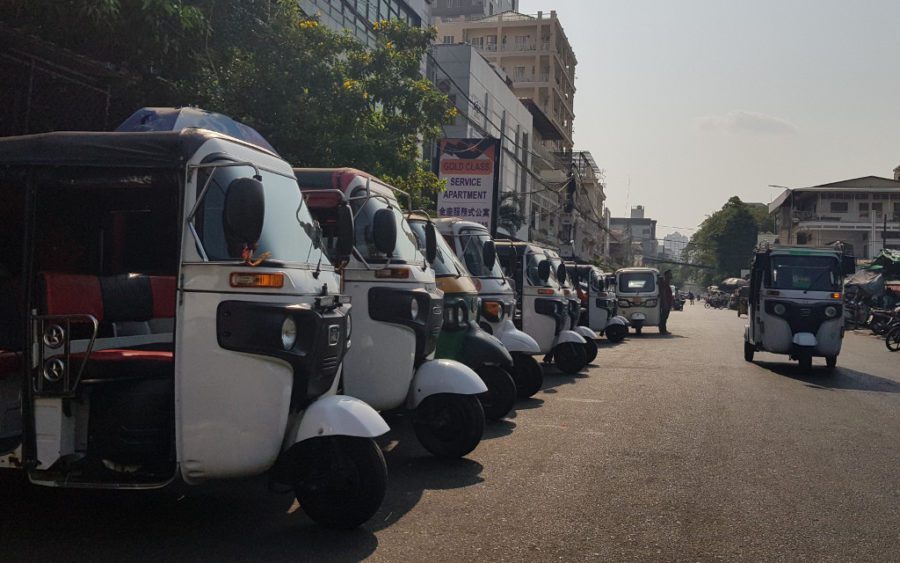PassApp says tuk-tuk rides on the company’s app were down 40-45 percent at the end of last week amid the latest Covid-19 outbreak, as Phnom Penh residents spoke of restricting outings to avoid unnecessary contact and using their own transport.
The country has seen the biggest wave of Covid-19 cases over the past week as part of the “February 20” cluster, with 15 more cases announced on Monday.
Dozens of buildings in both Phnom Penh and Sihanoukville have been closed due to their links to their cluster, and hundreds of people have been put in lockdown.
Phnom Penh resident Jason Zhang said late last week that he had mostly stopped going out anywhere except commuting from home to his workplace.
“You have to take care of your safety and make sure you’re healthy as well,” Zhang said, while waiting for a friend to pick him up to take him to work. “This is your self-responsibility.”
Bun Sokha, 39, who was coming out of Boeng Keng Kang market with bags of bananas and apples, said she had switched from riding tuk-tuks to using her own motorbike.
But for her it was as much about saving money, as her income had fallen over the past year due to the knock-on effects of the virus.
Nana Oun, meanwhile, was getting off a tuk-tuk in front of the market. She said she avoided going out as much as possible, and took her own motorbike whenever she could.
But on that day she was buying Buddhist ceremonial items she would be unable to carry without a tuk-tuk, she said.
She had brought a bottle of alcohol disinfectant to spray around the seat, she added.
“We don’t dare to go out, but when it’s very urgent, we have to take it,” Oun said.
Top Nimol, CEO of PassApp, said on Friday that the number of people booking three-wheel tuk-tuks had dropped about 40 to 45 percent since the February 20 outbreak.
“If it continues to spread for a while, and spreads wider, and if it spreads to the provinces, it will be difficult to prevent, and it will affect us for a long time and have a big impact,” Nimol said.
He added that if the outbreak doesn’t dissipate soon, some drivers would likely be forced to return to the provinces because they would not be able to afford to pay rent.
Drivers around Chamkarmon district, where several of the shuttered buildings are located, said they were struggling financially.
Seng Socheat, 36, said his clientele used to largely be Chinese residents of tower apartments and office blocks in the area.
“The situation is there’s nobody to pick up. It’s completely quiet,” Socheat said. “Everywhere is closing. This [building] is closed. I heard it has been closed since yesterday. If this one is closed, [my business] is finished.”
Another driver, Sok Han, waited outside the closed Bridge building in Tonle Bassac commune, with two face masks doubled over his mouth and nose. He had no bookings all morning, he said. He was not prepared to take another financial hit, he added.
“All the drivers are talking: The business places are closing now. Where should we go? What will we have to eat? We don’t have farms. We depend on the business on the roads,” Han said.













